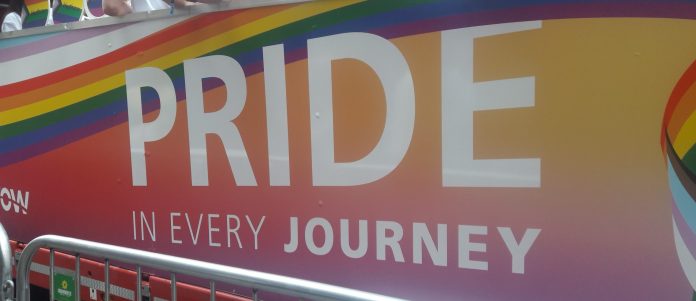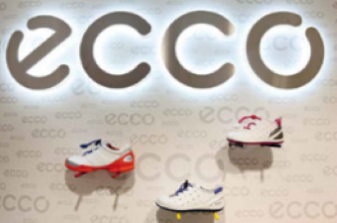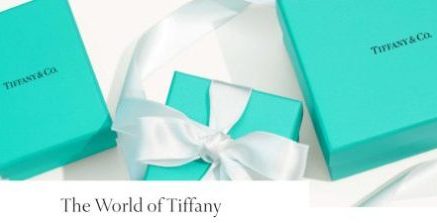Despite the grey skies and occasional drizzle, central London radiated with energy as tens of thousands took to the streets in a mass display of solidarity, identity, and resilience. Now in its 53rd year, Pride in London has grown from a modest march into one of the most significant events in the capital’s social calendar. This year’s gathering, stretching from Hyde Park Corner to Whitehall Place, saw over a million attendees according to Transport for London estimates, with 35,000 registered participants and more than 500 organisations represented in the parade. Leading the parade were the Gay Bikers Motorcycle Club, followed by a kaleidoscope of groups – from Pay with Pride and TfL to the Market Research Society, Lego, and the outspoken Homoparody Queer Collective. Tech and telco giants like Cisco and Sky also took part, further underlining how far corporate engagement with LGBTQ+ visibility has come.
Public transport issues and a cooler-than-expected day didn’t dampen the mood. While tube disruptions caused delays for some, particularly those travelling from outer boroughs and beyond, the city centre thrummed with colour, music, and joy. Creative self-expression was everywhere: rainbow flags, face glitter, nuns and priest costumes, superheroes in heels, and wigs contributing to the colourful ensemble. At the community level, hundreds of the British Armed Forces and related charities marched in formation – an increasingly visible symbol of shifting institutional culture. Across the day, a notable presence of volunteers, wearing colour-coded t-shirts mobilised by London-based community organisations, kept the flow running smoothly, assisting punters and spectators.
Entertainment was thoughtfully spread across six main zones: the Main Stage at Trafalgar Square, the World Stage at Golden Square, the Women & Non-Binary Stage at Leicester Square, the Cabaret Stage on Dean Street, the Trans & Non-Binary Stage at Soho Square, and a Family Area at Victoria Embankment Gardens. Although the focus across the stages was predominantly on trans visibility, women were also a major part of the inclusivity, with dedicated acts and performances celebrating their voices and experiences. Eurovision contender Olly Alexander, alongside author Shon Faye and actor Ellis Howard, gave impassioned speeches in support of trans rights – urging renewed commitment to dignity and inclusion in the face of rising global hostility. While headline act Chaka Kahn lit up Trafalgar Square as the sun dipped below the skyline, it was arguably the smaller community acts that gave the day its heartbeat, creating a shared, street-level festival of shared existence. Naomi Campbell was spotted making a brief appearance among familiar London queer personalities and artists. Several speeches across stages highlighted the ongoing struggles of LGBTQ+ people globally – from rising anti-trans rhetoric in Europe to criminalisation and violence in parts of Africa and the Middle East. Yet the dominant note was one of insistence on determination. Speakers urged attendees to continue pushing for change, not just mere celebration. The message resonated: this wasn’t just a weekend event, but part of an unshakeable civic and human-rights movement.
Although some high-profile allies were notably absent, there was an undeniable feeling of plurality – all found their place somewhere in the capital’s Pride celebration. Whether marching, observing, performing or simply joining in, Pride 2025 made a genuine effort to live up to its progressive theme. The phrase “Embracing Every Shade” was reflected in the visibility in who was platformed, which stories were told, and how diverse the crowd truly was. After-parties took over various corners of the city – from queer-run venues in Vauxhall and Dalston, to flashmob-style open-air gatherings in Soho and Southbank. The transition was seamless, and the energy remained high into the early hours. Though some LGBTQ+ attendees reported missing the day due to transit delays or weather-related hesitations, many joined later in the evening for after-parties held across Soho, Vauxhall, and Camden.
The 2025 theme, “Embracing Every Shade,” was conveyed successfully, not only through outfit, attitude and performances but in the curation and structure of the event. Every stage, songlist, and speech reaffirmed that Pride is more than celebration – it is movement, advocacy, and an ever-evolving reflection of people – be they gay, straight, bi, lesbian, trans or non-binary – to stand for their ground and stand up for their own rights. According to the BBC website, who spoke to London Pride organisers, a combination of economic challenges and the current political climate has decreased the number of companies supporting Pride events. Organisers explained that selling tickets was necessary to cover costs and ensure the event could go ahead. Some decisions had to be called out due to a lack of funding, economic pressures, and the political environment. While many Pride events face financial struggles and may need to reduce their scale or increase prices in the future, this year’s organisers emphasized that the Pride movement remains resilient, ensuring that the LGBTQIA+ community has always been and will always be incredibly strong. Despite a significant decline in corporate partnerships this year, Pride finds ways to come together, stand united, and come back even stronger.
London Pride began in 1972 as a political protest inspired by the Stonewall in New York. The first march, attended by around 2,000 people, moved from Trafalgar Square to Hyde Park and marked the birth of UK Gay Pride. Through the 1970s and 1980s, the event grew in both scale and sociopolitical significance. Over the decades, what started as protest evolved into a national tradition, blending movement with celebration. Today, London Pride remains one of the world’s most prominent LGBTQ+ events – not only for its size, but for its influence in shaping public discourse around equality and identity. While Prides in New York, São Paulo, and San Francisco hold similar global weight, London’s Pride continues to reflect both local realities and international solidarities.
In a time when some parts of the world are backsliding on equality, London’s Pride stood firm. With slight internal reorganisation and an evolving face year to year, it remains a powerful reminder that the UK does have the infrastructure, will, and identity to lead with values. Pride 2025 was a reflection of undeniable identity. As London continues to play the role as a beacon for LGBTQ+ rights in an ever changing world, this year’s Pride remains a significant reminder that progress is a must, and inclusion is a given. Even amid transport challenges and changing skies, the spirit of the day held for times ahead: firm, joyful, and bold.
HersToday is proudly supporting UK Pride Organisers Network.



